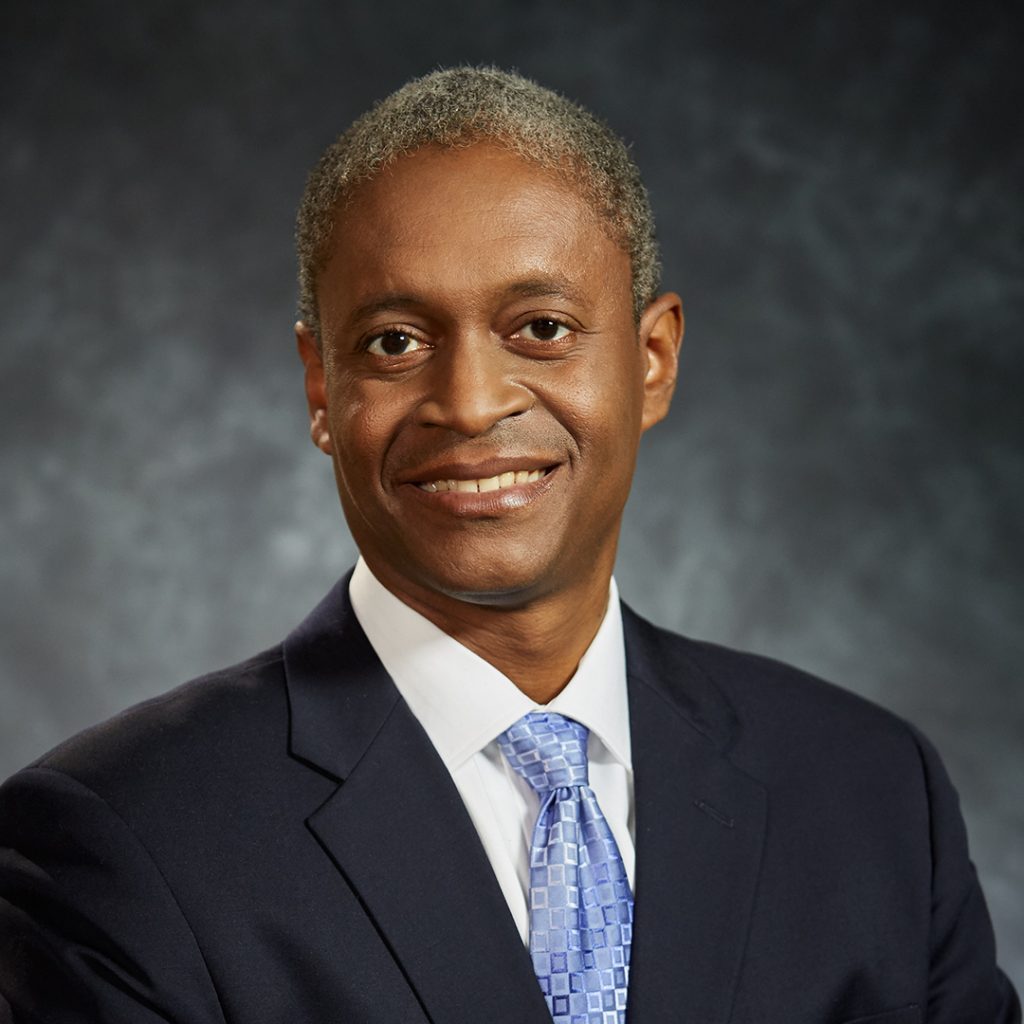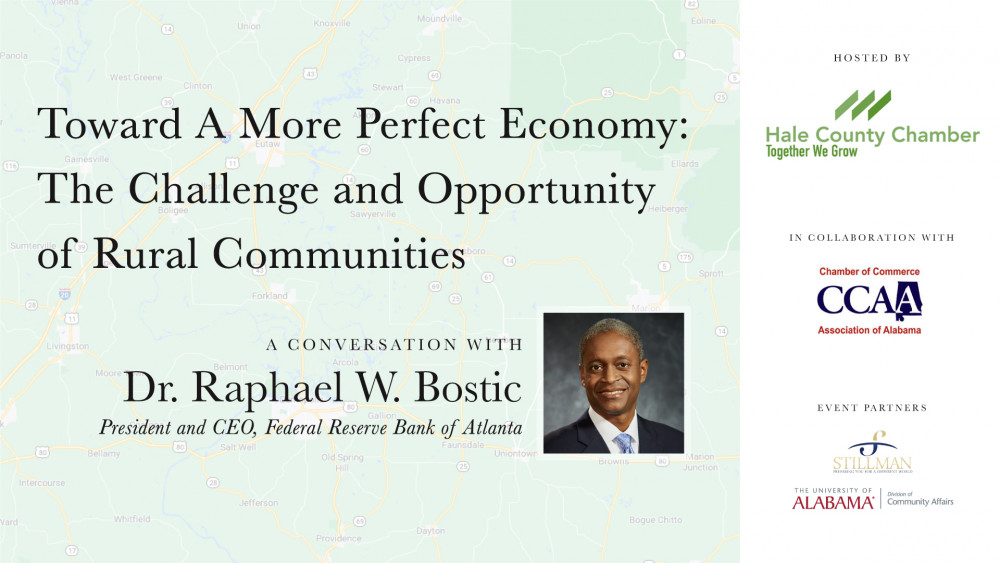Dr. Raphael W. Bostick, president and CEO of the Federal Reserve Bank of Atlanta, addressed how the Federal Reserve is responding to the needs of rural communities on Sept. 23 in a presentation titled “Toward a More Perfect Economy: The Challenge and Opportunity of Rural Communities.” This virtual conversation was held in partnership with the Hale County Chamber of Commerce, the Chamber of Commerce Association of Alabama, Stillman College and The University of Alabama Division of Community Affairs.
Community representatives joining the conversation included:
| Felecia Lucky | President of the Black Belt Community Foundation |
| Dr. Josh Pierce | Robert Hunt Cochrane/Alabama Banker’s Endowed Chair of Banking in the Culverhouse College of Business |
| Alex Flachsbart | CEO and founder of Opportunity Alabama |
Bostic’s responsibilities involve maintaining stable prices and monitoring financial risks to support the economy. With the Federal Reserve, Bostic helps regulate monetary policy through the setting of interest rates. The Atlanta Fed serves as a pipeline for financial lending, investments and small business partnerships.
Bostic said the COVID-19 pandemic, which has resulted in a significant drop in spending and a rise in unemployment, as well as concerns about eviction, has drastically changed how the Federal Reserve provides resources for local businesses and families. He said the Federal Reserve has responded with assistance to families and small businesses by creating the Main Street Lending Program to support businesses that didn’t qualify for the Paycheck Protection Program.
Rural areas are especially challenged, he said, to find solutions in gaining access to broadband connections, affordable housing and delivery of healthcare. With the increase of virtual meetings to ensure social distancing, access to the Internet is more important than ever for individuals and small businesses to complete daily tasks.

What we have first and foremost is a public health crisis, and the thing that will determine the trajectory of the economy is the trajectory of the virus and the nature of that crisis.
Said by Bostic
Bostic also addressed the importance of providing financial literacy for rural citizens, saying that every American must know where to find information and receive answers to their questions. For specific resources related to the COVID-19 pandemic, he recommended this website: https://www.frbatlanta.org/news/covid-19.aspx.
Challenges in the Black Belt are real when it comes to technology.
Said by Lucky, president of the Black Belt Community Foundation
Outside of the pandemic, rural communities are also widely affected by differences in technological resources. While some areas are in abundance of information and materials, some families and businesses are challenged with finding access to certain assets. To meet these needs, she said, individuals and organizations throughout Alabama, including the Black Belt, are collaborating to evaluate opportunities in rural communities. Flachsbart reported that Opportunity Alabama, a 501c3 organization, is working on an initiative with the Delta Regional Authority to ensure people of the Black Belt have access to technical assistance to support more local projects.
